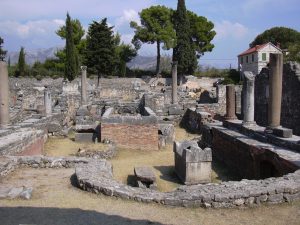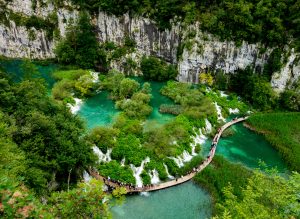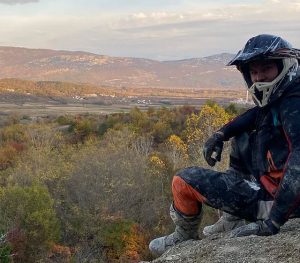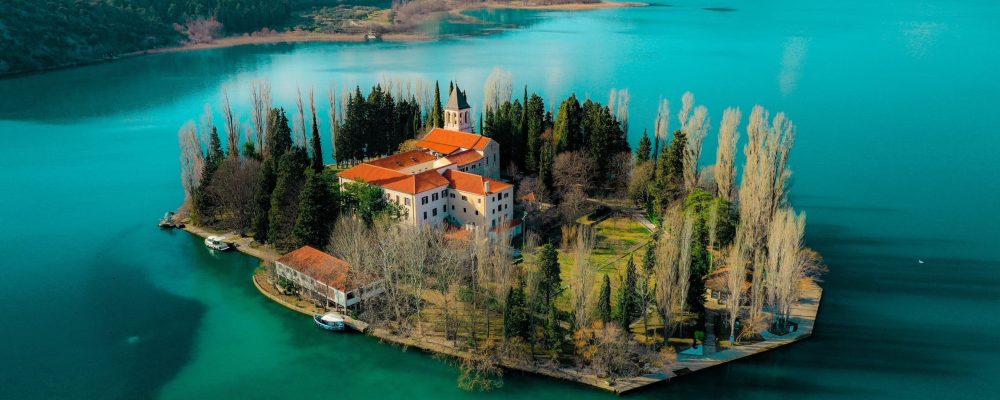Many people know Croatia for its wonderful sea, many come to spend their holidays on its beautiful coastline and some come to enduro with Enduro Experience Croatia.
But do you know the history of this wonderful country?
Croatia’s history is a fascinating one and, surprisingly, dates back to ancient times. The first evidence of human settlement in this region goes back as far as the Neolithic period, 10,000 years before the birth of Christ! The area was then inhabited by several Illyrian tribes, the original people from the region of Lake Shkodra and the present-day territories of Montenegro and Albania. This people included, among others, the Histri, the Iapodes and the Dalmatians. Their legacy is still evident in the archaeological sites and artefacts scattered throughout the country, while their contribution was fundamental; in fact, thanks to their advanced culture, crafts and trade networks, they laid the foundations for the future development of the region.
Later, precisely in the 1st century A.D., Croatia became part of the Roman Empire, and it was here that an era of profound cultural and architectural influence began. The Romans left an indelible mark on the region, building towns, roads and infrastructure that would last for centuries. The ancient city of Salona, located near present-day Split, was an important Roman centre and boasted impressive amphitheatres, temples and forums that reflected the grandeur of Roman civilisation. Evidence of this era can be found in many other towns and villages of varying size.

The medieval period saw the rise of independent Croatian principalities and the formation of the Kingdom of Croatia under the Trpimirović dynasty. The kingdom flourished as a centre of trade and art, and it was during this period that a distinct Croatian identity was born, shaped by the fusion of Slavic, Latin and Byzantine influences. Croatia’s strategic position along the Adriatic coast also made it a coveted prize for various European powers, leading to periods of dynastic alliances, conflicts and territorial displacements.
Between the end of the Middle Ages and the beginning of the modern age, Croatia entered into union with the Habsburg monarchy. It was a crucial development that would have a significant impact on the future of this nation. Indeed, under Habsburg rule, Croatia experienced both periods of wealth and prosperity and those fraught with challenges, and the influence of the empire influenced the country’s political, economic and cultural development. The fusion of Croatian and Habsburg traditions has left a lasting legacy, evident in the architectural wonders and artistic treasures that adorn Croatia’s cities and towns.
The 19th and 20th centuries brought profound changes to Croatia, which was faced with the complexities of modern statehood and national identity. Croatia had to fight to remain independent from foreign powers, including the Austro-Hungarian Empire. In 1918, Yugoslavia was born, uniting the Eastern European bloc and for which the foundations were already laid in the 19th century, with unions between Slovenes, Croats and Serbs. More recently, Croatia asserted its self-determination and sovereignty, creating the Independent Republic of Croatia in 1991, marking a historic milestone for the nation and its people.

Today, Croatia is a vibrant and dynamic nation, celebrated for its breathtaking natural beauty, thriving cultural scene and warm hospitality. It is a country that offers much to the millions of tourists who visit each year. From the sun-kissed shores of the Adriatic to the enchanting medieval streets of Dubrovnik, Croatia draws visitors with its wide range of attractions, including UNESCO World Heritage sites, ancient ruins and picturesque landscapes. The country’s commitment to preserving its heritage and embracing modernity has made Croatia an attractive destination for travellers and a beacon of resilience and optimism.
As we reflect on Croatia’s multifaceted history, we are reminded of the enduring spirit of its people, who have withstood the tides of time with strength and grace. Croatia’s history is a testimony to the strong power of culture, tradition and the human spirit, and its story continues to unfold with each passing day, inviting the world to partake in its timeless charm and boundless potential. It is a country that looks to the future, carrying with it the indelible imprint of its past, testifying to the resilience and vitality of a people that has stood the test of time and a nation that has emerged as a beacon of inspiration for generations to come.

Croatia’s entry into the European Union last year has brought it even closer to the rest of Europe, and this certainly makes a difference for a country that basically lives on tourism. We are waiting for you to discover the beauty of our country; whether you come for an enduro tour or for the sea, we are ready to guide you to take in the beauty that Croatia has to offer.


